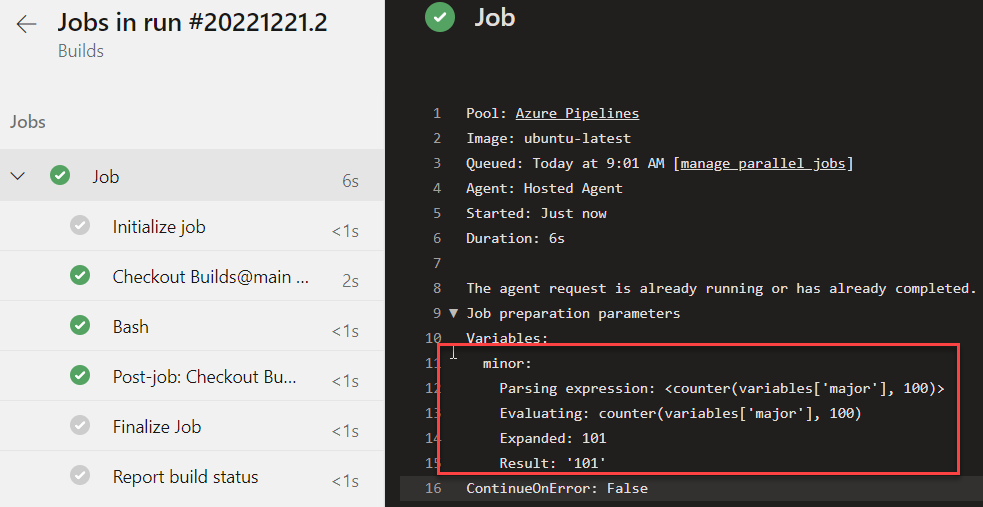Pills: Azure Devops pipeline Counters
If you need to have a unique incremental number for each pipeline run, Counters are your solution
Sometimes you need to have a unique number in your pipeline, usually this is needed to generate a unique version number as an example for publishing NuGet packages and avoid conflict. If you use Git (and there is no need to not use it) you can use GitVersion to generate a unique semver version number that is unique for each build. But if you are not using Git and GitVersion, or if you need to rebuild the same commit and have a unique version for each run, regardless of the commit you can use a Counter.
A counter is a sort of auto incremented Dictionary container scoped to a pipeline.
Lets see how you can declare a counter, the following example is taken from the official documentation:
| |
As you can see a variable called $(minor) is defined as a counter, passing two parameters. The first parameter is called prefix and it is used to have multiple counters for each pipeline. This means that For each prefix you will have a different counter and so a different sequence. Second parameter is seed, and it is simply the first number that will be generated for a prefix.
Now suppose you run the pipeline, what happens is that during the first run, Azure DevOps engine will create a sort of dictionary with 1 as key and 100 as value and value of $(minor) will be 100. If you run again the pipeline, the engine will check the entry of the dictionary, found that for entry 1 there is a value of 100, will increment to 101 and so the value of $(minor) will be 101.
If you change major version for the pipeline, you will have a new entry in the dictionary with 2 as key and first value 100. At the end of the run you have value 101 for key 1 and 100 for key 2. This will helps you to maintain different counters for the same pipeline based on some logical key.
Another interesting example is defining the variable to have a seed that is based on timestamp, like this:
| |
In this example seed is based on the date, this will generate a new sequence for each day. You can use every variable you want as seed, there are plenty of examples in official documentation.
Figure 1: Verify Counter expansion in build logs
As you can see in Figure 1, you can verify from log how expansion of Counters is done to verify that everything works as expected.
Gian Maria.

